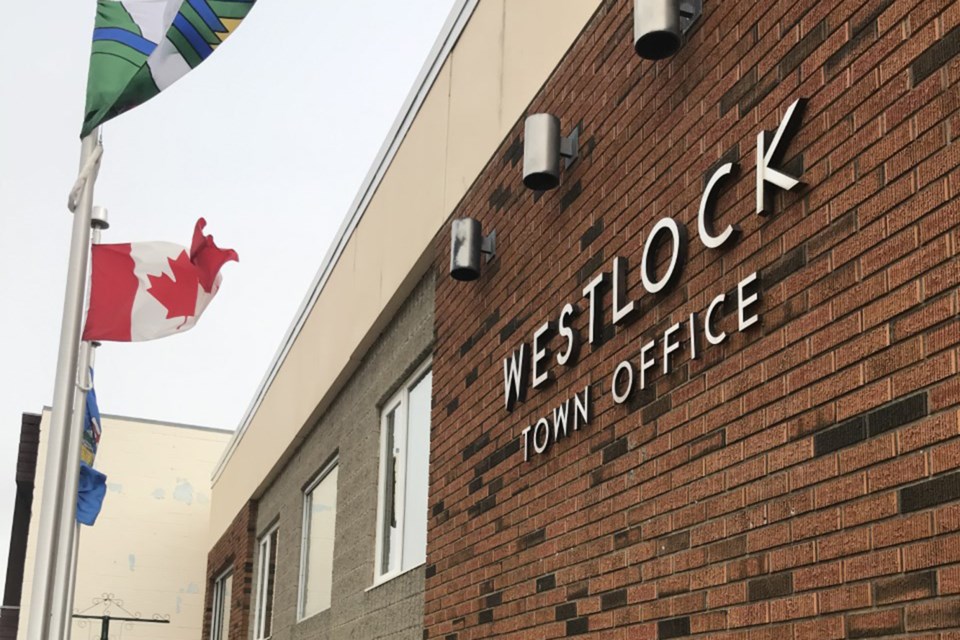“There’s really good reasons why politics and politicians should stick the heck out of assessments,” said mayor Ralph Leriger during a special meeting of council Aug. 31.
“It’s supposed to be arm’s length, and if the province wants to help CNRL, because it might as well read ‘the CNRL assessment model’, if they need to help them then there has to be another mechanism that doesn’t have so many consequences.”
The letter will also be sent to Athabasca-Barrhead-Westlock MLA Glenn van Dijken, the minister of finance, the minister of municipal affairs, Alberta Urban Municipalities Association, Rural Municipalities of Alberta, and neighbouring municipalities.
Councillors voiced support for their rural neighbours, who are set to lose significant portions of their income should any of the four proposed models pass. The province revealed them in July, after a series of confidential consultations.
Both the Alberta Urban Municipalities Association and Rural Municipalities of Alberta were part of the process.
“I think what we should be focusing on is our neighbours. I mean, this is an outrage for them. They are going to have to make some significant changes,” said Coun. David Truckey.
For Westlock County, this would mean an estimated 24.1-31.3 per cent increase in residential taxes, a 21.4-27.8 per cent full-time staff reduction, and cuts in services offered, deputy reeve Brian Coleman wrote in a July 27 letter to Athabasca-Barrhead-Westlock MLA Glenn van Dijken.
“Raising tax rates to offset the impacts of the assessment model change will have the effect of simply transferring taxes from the oil and gas industry to other businesses and residents,” wrote Coleman.
Coun. Murtaza Jamaly pointed out that the consultation process didn’t include municipal governments.
“You know, you’re looking at a system where you can improve oil and gas in our community by taking money out of a pocket that’s not yours to take out of,” he said.
“I remember when premier Kenney came to Westlock and sat down with a group of us in a small room at the Westlock Inn and said that this was about grassroots. That was the word he used. And that’s not the case today.”
Jamaly wanted the letter to clarify to the premier that “decisions without consultation with municipalities will not be accepted.” To him, while writing the letter is proof of solidarity with rural neighbours, changes to assessment affect all Albertans.
As Leriger put it, there are unintended consequences. In AUMA’s opinion, the government “hasn’t shared a forecast of the long-term impacts” of changing the assessment model. Instead, proposed changes “use the assessment methodology to meet tax policy goals, which violates the principles of property assessment.”
“As I understand it, there are several in this particular caucus that believe that every municipality in this province is as wealthy as Greenview County and are using that as the benchmark,” said Leriger, who focused on the “well-orchestrated history of the download (of costs) on municipalities over the last 30 years,” including the educational requisition tax and most recently, police costs.
Coun. Clem Fagnan also revealed he had his own intentions of writing a letter to the UCP, after receiving a donation request from the party in the mail.
“The letter listed all the things that they were doing for us, all the good things they were doing for us. And I read the whole letter, and I sort of thought that I was going to respond by saying ‘There would be no further funds coming from this household,’ and I was going to list the reasons why. And I wanted to point out the assessment, and the education, and all the things that are happening which are affecting the municipalities, which consequently affect the taxpayer,” Fagnan said.
To the east the County of St. Paul has started a petition and as of Sept. 8 had 946 signatures (https://www.lakelandtoday.ca/local-news/county-of-st-paul-circulates-online-petition-2699490). The petition, which closes Sept. 18, will be sent to the Minister of Municipal Affairs, said CAO Sheila Kitz in her monthly report presented during the Sept. 8 council meeting.
Andreea Resmerita, TownandCountryToday.com
Follow me on Twitter @andreea_res



